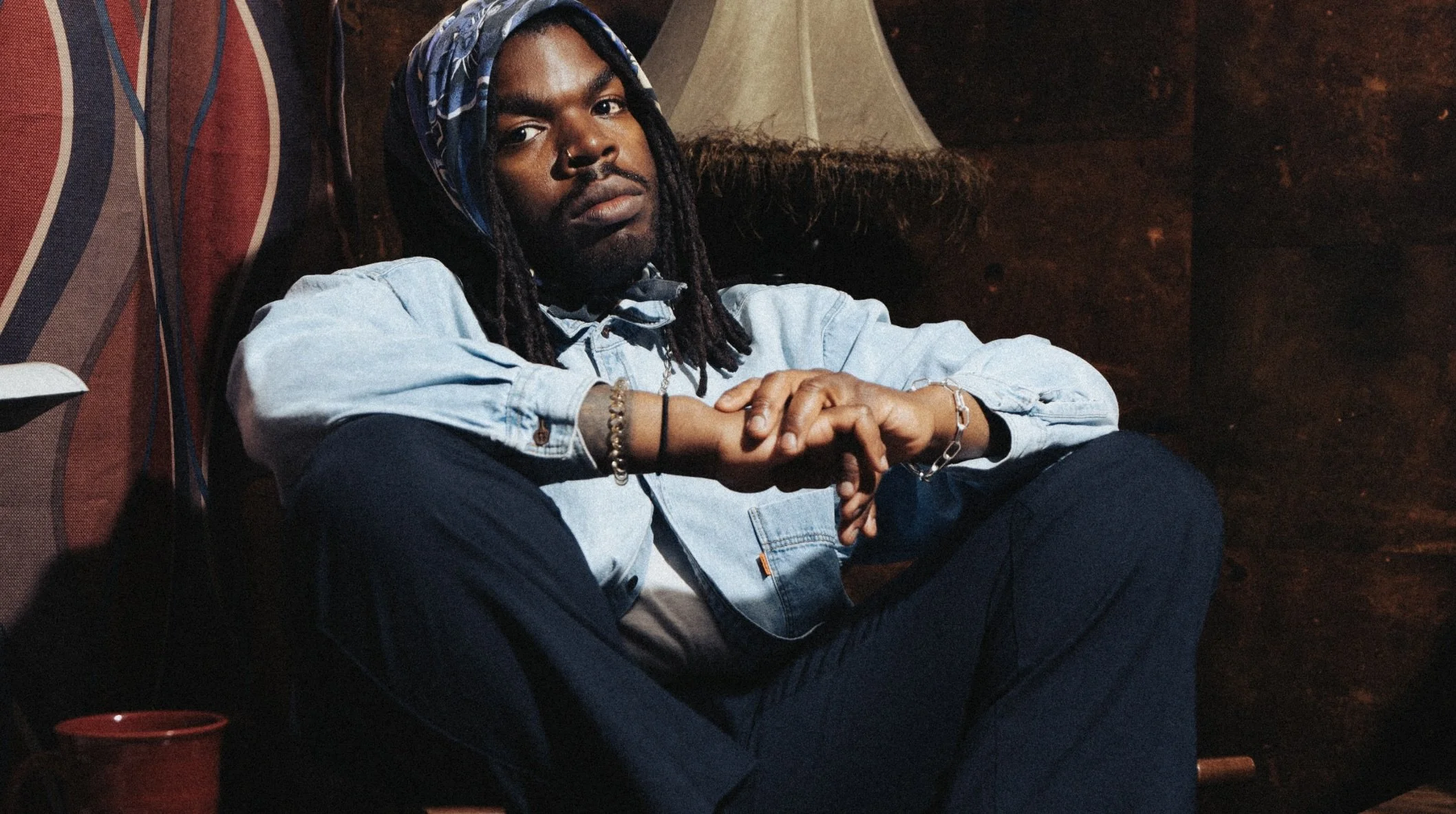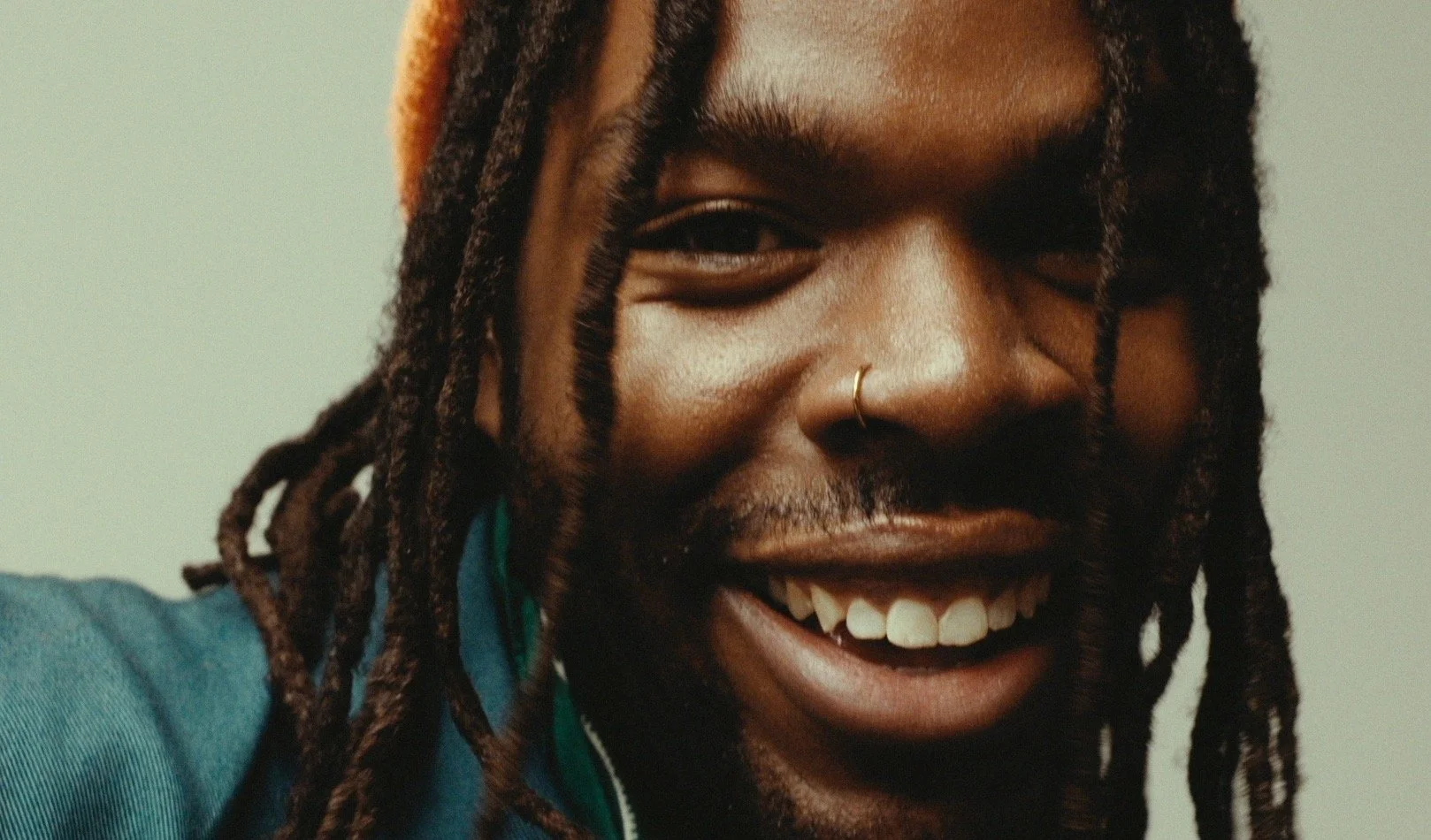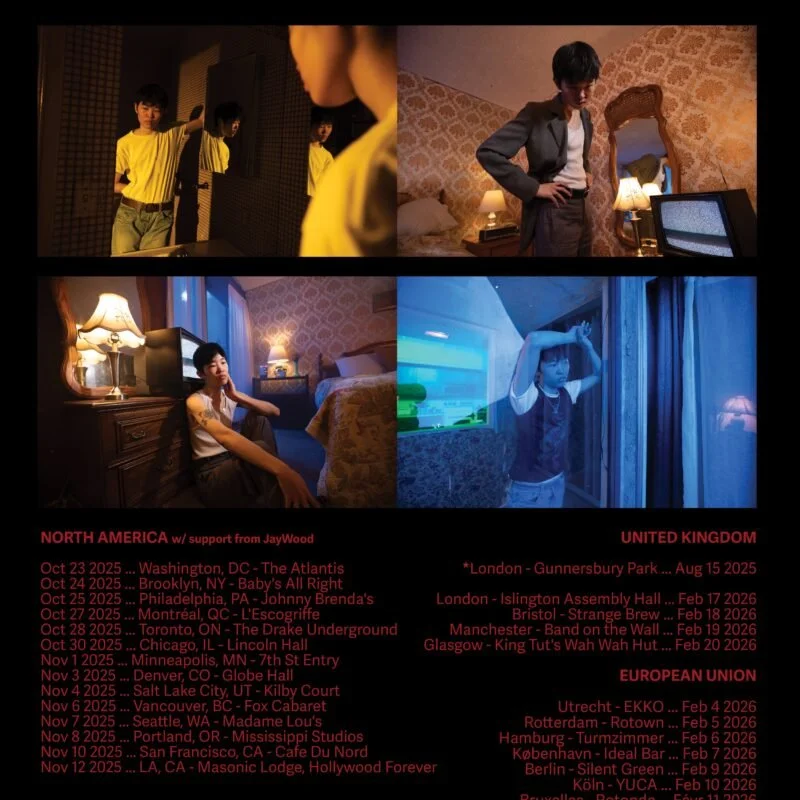A Kaleidoscope of Selves: JayWood’s Restless, Human, and Fearless New Chapter
No Interest In Playing It Safe
Leo Negro: The Montreal Artist Weaving Confessions into Art
JayWood isn’t interested in playing it safe. The Winnipeg-born, now Montreal-based artist has built a reputation on shapeshifting sounds, swerving from funk and psych to rap all with vulnerability and no flinching. His new album, Leo Negro — out September 5th on Captured Tracks — feels like his boldest swing yet, a kaleidoscope of 11 different versions of himself colliding on one record. It’s restless, funny, anxious, confident, and above all human, the sound of an artist leaning into discomfort as much as bravado. Across the album JayWood flips between rap cadences, indie-pop hooks, and late-night confessions, all while threading together a story about identity and growth. It’s the kind of project that resists easy categorization but rewards you for sticking around, breadcrumb by breadcrumb. We caught up with JayWood to talk about identity, Leos, rap personas, and why sometimes the most powerful move is letting vulnerability take the wheel.
Justin Staple: Tell us a little bit about the new album and what it means to you.
JayWood: This album is kind of a deep dive into identity, just rolling through a lot of different changes in life and trying to figure myself out in the most graceful ways possible. It’s about the vulnerability of exploring art. Yeah, it’s just trying a lot of new things and giving myself permission to make those attempts, I think. There are 11 songs.
JS: It was described that you have 11 different selves across the record. I’m assuming that connects to the 11 songs as well. How do you embody all these different personalities?
JayWood: You got that right!
JS: How would you describe one being different than the other?
JayWood: I feel like they’re not as rigid as 11 separate versions of myself, but they’re all still me. It’s just about where I tend to put my focus and energy. Some versions of me are nerdier, some are more hardworking, some are joking all the time. I always joke that I should just have a plot twist and become evil and lean into that. Some versions of me are more ego-driven, some are led more by vulnerability. It’s just about working with all these sides of myself to find some kind of harmony.
JS: Would you say this is a growth in mindset from your earlier work? Because in the past you fused a lot of different genres, but do you think this perspective came as you’ve navigated your career?
JayWood: I think I’m always going to be changing things up. My favorite artists are the ones where every album is something completely different. You never know what to expect, and you’re always excited to see what they do next. I aspire to that. This time I stepped into a genre I don’t even claim — I’m not a rapper, I keep saying that, but there’s so much rap on this album. It’s me putting on a different hat, trying on a persona and an energy. And yeah, the next project will probably follow the same idea. I am a Leo.
“My favorite artists are the ones where every album is something completely different. You never know what to expect, and you’re always excited to see what they do next. I aspire to that. This time I stepped into a genre I don’t even claim—I’m not a rapper, I keep saying that, but there’s so much rap on this”
- JayWood
JS: One bar you had on the press description is that Leos are generally known for their confidence, but this record shows a more vulnerable side of you. It’s kind of a contradiction. Could you explain what you meant?
JayWood: I’ve been trying to figure out confidence and embodiment — just being strong in my sense of self. But in doing that, I realized I was actually very uncomfortable with myself. I had just moved across the country and I felt vulnerable and unsettled. I found that when I leaned into saying, “Hey, I’m Jeremy, nice to meet you. I’m really uncomfortable and super anxious right now,” it actually gave me a weird boost of confidence. Like, you don’t have to have it all figured out — you can lead with your vulnerability. That was a sense of confidence I didn’t think was possible, honestly. Whatever it is, the way you tell your story online can make all the difference.
JS: You’re a Leo yourself?
JayWood: Yeah.
JS: There we go, I am as well. August 18th.
JayWood: No s***.
JS: Leo season! Thank you very much. Is your birthday on the release day?
JayWood: Hey, happy belated. Mine’s on the third. I tried so hard to get the album to drop in Leo season, but it just didn’t line up. I was like, “Next one.”
JS: Were there books, films, or other artists that led you to this mindset? How did you arrive here?
JayWood: A big inspiration was the movie Love and Mercy — the Brian Wilson biopic. It sent me down this idea that there’s other stuff you can explore in art. I did a deep dive into Pet Sounds. I was also absorbing a lot of music documentaries and reading different books on creativity. I listened to Rick Rubin’s book The Creative Act, read Big Magic by Elizabeth Gilbert, and The Artist’s Way. They encouraged me to find art in everyday life and do something creative consistently. I usually used music like a journal entry, but this time I wanted to go deeper.
JS: That’s really interesting. In addition to those books, you mentioned music documentaries. Do you remember any off top?
JayWood: Making Motown was really big for me. The Quincy Jones doc was amazing too. And of course Hip-Hop Evolution — that will always be one of my biggest inspirations. Seeing people grind and hustle like that was so inspiring.
JS: And are you in Montreal right now? What’s the scene like up there?
JayWood: Yeah, I am. There’s definitely a community here. Montreal offers so many different options, which is exciting but sometimes overwhelming. My French isn’t as good as I’d like it to be, so that makes it a bit tricky to be involved in everything. But it’s a cool city with a really interesting culture.
JS: That’s amazing. I know there are some collaborators on the album — like Tune-Yards. Talk about the people you worked with on production and features.
“You don’t have to have it all figured out — you can lead with your vulnerability. That was a sense of confidence I didn’t think was possible, honestly.”
JayWood: Yeah, there’s Tune-Yards for sure. There’s also Joya, who I met at a songwriting camp. Ammy Chun, who I previously worked with, is a close friend, so I had to get her on the record again. My stepbrother Muki makes an appearance with a rap verse on “Ask for Help,” which was sick. He actually took all his music off Spotify before it became cool to do that. Then I have my close collaborators Brett Tissson, Will Greer, and Arthur Anthony — engineers, producers, and friends who’ve helped me with music for years.
JS: That’s fantastic. What’s your process like — are you making all the instrumentation at home and then bringing lyrics later?
JayWood: Yeah, I demo everything at home. I’d say about 50% of this record was made there. I wrote the songs, arranged them, and produced the bones of them before adding lyrics. In the studio, I usually tweak lyrics and focus more on finding the right sounds, fine-tuning everything, and building toward the bigger vision.
JS: What do you do for fun up in Montreal?
JayWood: Honestly, whatever you can think of. Coming from a smaller city, it’s cool to see so many options of things to do in a week — or even in a day. Sometimes it’s overwhelming, but it’s a nice change.
JS: Let’s talk about some of the singles. “Pistachios” — what’s that song about?
JayWood: That one was me trying to step into that rap persona with as much confidence as possible, especially since it’s the first track on the album. It’s about big swings, being bold, and just trying to embody confidence.
JS: And what about “Assumptions” or “Sunbaby”?
JayWood: Funny enough, with “Sunbaby,” I wasn’t sure about it at first, but people really resonated with it. I thought it needed the context of the whole album, but after making the video I liked it way more as a single. It kind of ties together the themes of the album — sometimes you have to let vulnerability win out over ego. You can hear that in the breakdown of the song. With “Assumptions,” as soon as I finished writing it, I knew it was a single. Everyone I showed it to said the same thing.
JS: Talk about the music videos. Who puts those together?
JayWood: I’ve always been a big advocate for music videos. I usually storyboard ideas, pull video references, and sketch out narratives. Then I work with directors to get as close to my vision as possible. Eventually I want to direct my own videos — for myself and others. I already do a lot of the writing for mine, and the label has noticed those ones usually come out stronger. Writing is something I really love outside of music, so it’s cool to keep building that.
JS: You’re also about to go on tour. Who are you heading out with?
JayWood: I’m going on tour with Noso, which is exciting. And I get to bring my crew from Winnipeg — Brett Tissson on keys, my drummer Ben Stokes who I’ve played with for six years, and Charlotte Friesen, my old roommate and a killer musician. Honestly, I’m just excited to get out of the mundane day-to-day. The mailman thing sucks — I’m over it. Touring is the s*** I actually want to do.
JS: That sounds way better than the mail.
JayWood: Big time.
JS: How are rehearsals going?
JayWood: Good. We usually work individually a lot, then come together and power through everything. The band is so talented it makes things smooth. We’re doing a lot more of the newer songs this time, which I’m excited about.
JS: What has the fan feedback been like leading up to the album?
JayWood: People have been really stoked. For years, folks expected one sound from me — the “JayWood sound.” But people seem excited about the change and diversity this time. It’s also my first album campaign in the big social media era, so connecting with a bigger audience has been cool.
JS: What do you hope fans take away after hearing it?
JayWood: I hope they leave curious. I want the album to sit with them long enough to listen again, pick up new things, and notice the breadcrumbs in the visuals and storyboarding. I’ve got a lot of visual ideas to roll out after release. The music is a huge component, but I want it to feel multi-faceted, like a bigger creative world people can invest in.
JS: Amazing. Congratulations — it’s a fantastic album.
JayWood: Thank you so much for chatting. It really means a lot. Hopefully we’ll get to hang at Hollywood Forever.





